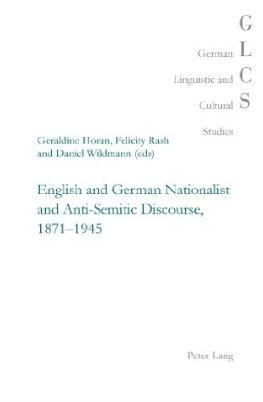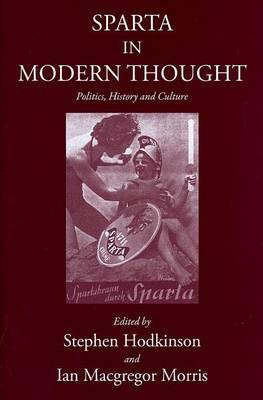Work
 ‘"Anti-Enlightenment": National Socialist Educators' Troubled Relationship with Humanism and the Philhellenist Tradition'
‘"Anti-Enlightenment": National Socialist Educators' Troubled Relationship with Humanism and the Philhellenist Tradition'in Publications of the English Goethe Society 82 (3), 2013, pp. 193-207.
This article examines some of the ways in which scholars and educators under National Socialism attempted to construct a model of philhellenism for the ‘Thousand Year Reich’ which explicitly defined itself as descended from, yet opposed to, earlier manifestations of the phenomenon, especially as personified by Enlightenment figures such as Winckelmann and Goethe. They also proclaimed a return to the true, ‘living’ spirit of the original Greek gymnasion.Read more...
 "'In Sparta fühlte ich mich wie in einer deutschen Stadt" (Goebbels): The Leaders of the Third Reich and the Spartan Nationalist Paradigm'
"'In Sparta fühlte ich mich wie in einer deutschen Stadt" (Goebbels): The Leaders of the Third Reich and the Spartan Nationalist Paradigm'in English and German Nationalist and Antisemitic Discourse, 1871-1945, ed. Felicity Rash, Geraldine Horan, Daniel Wildmann, Oxford (Peter Lang) 2013, pp. 91-115.
This article examines some of the ways in which many of the Third Reich's leading figures (including Hitler, Goering, Goebbels, Rust and Rosenberg) treated Sparta as the perfect paradigm of a racially-pure warrior-state, as well as claiming that, in a certain sense, the Reich was Sparta incarnate.Read more...
 'Spartan Supremacy: A "Possession for Ever"? Early fourth-century expectations of enduring ascendancy'
'Spartan Supremacy: A "Possession for Ever"? Early fourth-century expectations of enduring ascendancy'in Hindsight in Greek and Roman History, ed. Anton Powell, Swansea (Classical Press of Wales) 2013, pp. 91-112.
This article explores and analyses the ways in which historians, both modern and ancient, have applied hindsight to the Spartan empire of 404-371 B.C., and to its downfall. Many modern treatments of the period are even labelled as studies in Spartan failure, and thus betray a tendency to over-emphasise error and lack of foresight on the part of Sparta.Read more...
 '"Spartanische Pimpfe": The Importance of Sparta in the Ideology of the Adolf Hitler Schools'
'"Spartanische Pimpfe": The Importance of Sparta in the Ideology of the Adolf Hitler Schools'in Sparta in Modern Thought. Politics, History and Culture, ed. Stephen Hodkinson, Ian Macgregor Morris, Swansea (Classical Press of Wales) 2012, pp. 315-42.
This article explores the ways in which an ancient history textbook by the well-known archaeologist and educator Otto-Wilhelm von Vacano, entitled 'Sparta: The Life-Struggle of an Aryan Master Race', was used to encourage pupils at the Adolf Hitler Schools to identify with young Spartans, and to see Spartan history in proto-National Socialist terms.Read more...
 Critique of the portrayal of the Prussian Cadet Corps in Jörg Muth's 'Command Culture' (2011)
Critique of the portrayal of the Prussian Cadet Corps in Jörg Muth's 'Command Culture' (2011)An informal blog review considering the flaws in Jörg Muth's portrayal of the Prussian Cadet Corps in chapter 3 of his monograph Command Culture: Officer Education in the U.S. Army and the German Armed Forces, 1901-1940, and the Consequences for World War II (Denton: University of North Texas Press, 2011).Read more...
Presented at the 81st Anglo-American Conference of Historians, Institute of Historical Research, University of London, 6 July 2012.Read more...
Presented at the Modern German History Graduate Seminar, University of Cambridge, 28 May 2012.Read more...
Presented at the Classical Association Annual Conference 2012, University of Exeter, 12 April 2012.Read more...
Presented at the Association for German Studies Annual Conference 2012, University of Edinburgh, 2 April 2012.Read more...
Presented at the German Historical Institute London Postgraduate Conference 2012, German Historical Institute London, 12 January 2012.Read more...
